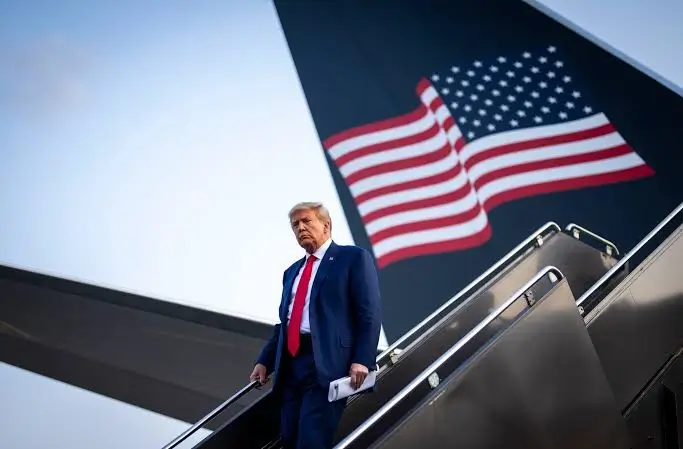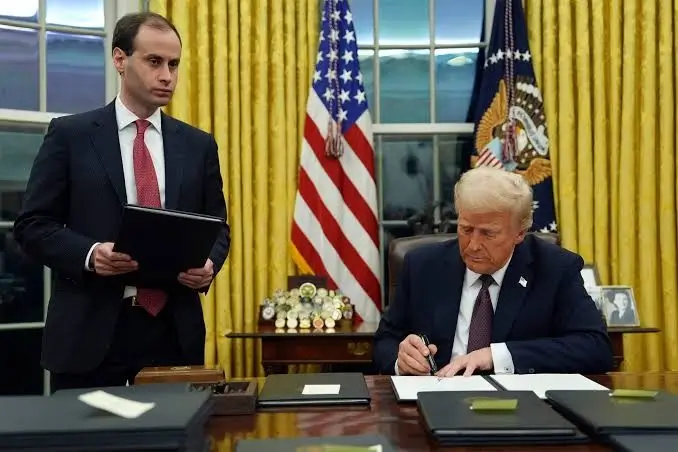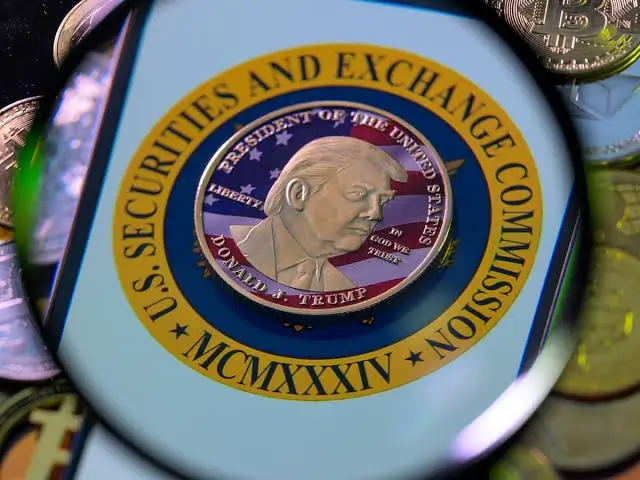The Rise of $TRUMP: Political Symbol or Digital Power Play?
It started like many political stunts do—playful on the surface, but carrying serious weight underneath. In early 2025, not long before Donald Trump resumed his presidency, a meme coin dubbed $TRUMP emerged on the Solana blockchain. Pitched as digital memorabilia, the coin quickly spiralled into something far more significant.
Within weeks, the token’s value soared. By month’s end, its market capitalisation surpassed $27 billion. Trump’s personal share? An estimated $2.9 billion—quietly held via entities tied closely to him.
Despite disclaimers stating it wasn’t meant as an investment, the coin’s marketing and Trump-aligned endorsements suggested otherwise. Supporters snapped it up, some hoping for exclusive access, others simply banking on potential gains—and possibly influence.
But underneath the cryptocurrency glitz lay a deeper issue: Should a sitting president profit billions from a volatile, barely regulated industry while simultaneously steering its regulation?

$TRUMP’s Emergence: A Political Token or a Strategic Crypto Move? ( Image Source: The New York Times )
Access for Coin: Politics Meets Crypto at the Dinner Table
One evening summed up the fusion of politics, profit, and privilege: the 22 May 2025 dinner at Trump’s posh Virginia golf resort. Unlike traditional political fundraisers, the entry fee wasn’t campaign cash—it was cryptocurrency.
Only the top 220 $TRUMP coin holders gained access, their combined holdings worth nearly $150 million. But the spotlight shone brightest on the elite 25, those who had the largest investments. Their reward? A one-on-one session with Trump.
To ethics watchdogs, this wasn’t just unorthodox—it was alarming. They likened it to auctioning political access, but with crypto replacing currency.
Worse still, several big-ticket investors came from overseas. The idea that foreign nationals could essentially buy face time with the U.S. president via blockchain holdings raised urgent concerns about transparency, influence, and national interest.
World Liberty Financial: Trump’s Crypto Engine
Beyond the meme coin, Trump’s larger crypto ambitions operated through World Liberty Financial (WLF), a DeFi firm he co-founded with his sons. WLF wasn’t just dabbling—it was brokering massive deals.
A prime example: in 2025, WLF facilitated a $2 billion investment from an Abu Dhabi-based fund into Binance, the globe’s largest crypto exchange. Binance’s history with U.S. regulators made the deal especially eyebrow-raising.
Trump wasn’t a passive observer—he was directly linked. As president, with a private company negotiating such deals, questions exploded. The timing also stoked suspicion: the deal occurred shortly after the U.S. government loosened crypto oversight—under Trump’s watch.
And then there was Justin Sun. A Chinese-born crypto investor previously under U.S. investigation, Sun dropped $30 million into Trump’s crypto ventures. The charges against him? Quietly dismissed following Trump’s return to power.

Trump’s Crypto Arm: Inside World Liberty Financial ( Image Source: Crypto Economy )
Eric Trump: The Family Behind the Finance
At the heart of WLF is Eric Trump. Though he’s never held elected office, Eric serves as Trump’s business partner and the key operator behind the family’s crypto activities.
Eric reportedly runs WLF’s daily affairs and played a crucial role in arranging the controversial $TRUMP coin dinner. His involvement underscores how intertwined the Trump family’s business and political worlds remain.
Ethicists argue that when familial influence blends with public duty and international money, the results become a tangle of unchecked power. And when one family controls both the regulatory pen and the profits, the risk of conflict escalates.
A Regulatory Vacuum—or a Strategy?
From the moment Trump returned to the Oval Office, sweeping changes took place. Leadership within key federal agencies like the SEC and DOJ shifted, and crypto enforcement priorities were scaled back.
Ongoing investigations—such as those into Justin Sun—were dropped. New regulations made it harder for agencies to probe digital asset transactions. Coincidence? Critics think not.
They suggest these weren’t just deregulatory policies, but strategic moves to shield Trump’s own crypto ventures from scrutiny. With fewer watchdogs, the landscape became more fertile for WLF and the $TRUMP coin to operate without limits.

Regulatory Gap or Calculated Policy Shift? ( Image Source: The Globe and Mail )
The Ethics Minefield
The ethical outcry over Trump’s crypto dealings has reached Washington. Senators Elizabeth Warren and Jeff Merkley have been particularly vocal, pointing to possible violations of the foreign emoluments clause in the U.S. Constitution. This rule bars presidents from accepting gifts or payments from foreign governments—yet here we have foreign investors channelling millions into Trump-linked crypto.
And it’s not just about legality—it’s about trust. Can Americans be confident in decisions made by a leader profiting from unregulated digital markets? Should foreign entities hold sway over political access through blockchain tokens?
To curb these issues, Senate Democrats proposed the End Crypto Corruption Act—a bill that would demand greater transparency and enforce stricter rules around crypto ownership for public officials.
Simultaneously, a Senate subcommittee has launched a fresh investigation into WLF, the $TRUMP coin, and the dinner that triggered a political earthquake.
When Crypto Meets the Constitution
What began as a flashy meme coin now sits at the crossroads of power, profit, and political responsibility. Trump’s ventures haven’t just pushed financial boundaries—they’ve redrawn ethical ones.
Supporters hail the moves as entrepreneurial genius: a bold way to fund campaigns, disrupt finance, and connect with tech-savvy voters. But critics see a presidency for sale—wrapped in crypto.
At the core lies a simple but profound question: Can a president ethically involve himself in speculative crypto schemes while shaping the very rules that govern them?
And does the fact that these assets exist digitally make them harder to track—or easier to abuse?

Where Digital Wealth Clashes with American Law ( Image Source: The Guardian )
A Glimpse Into the Future
As Trump’s crypto dealings continue to unfold, the world watches with a mix of awe, unease, and disbelief. It’s a test case not just for American politics, but for global democracy in the digital age.
If left unchecked, this may become a template for future leaders seeking both power and profit. If properly scrutinised, it could mark a turning point for how we define ethical governance in a decentralised world.
For now, Trump’s $2.9 billion windfall stands as both a symbol of success—and a warning sign. Whether it ends in reform, scandal, or something else entirely remains to be seen.

